Making English a Second Language: Challenges and Opportunities of the Faculty of Foreign Language Education, Vinh University
To gradually make English the second language in schools, foreign language training institutions at the university level are facing great challenges. What does the Faculty of Foreign Language Education, Vinh University, do to overcome those challenges?
From Party and State policies to School Strategy
On August 12, 2024, the Central Executive Committee issued Conclusion 91-KL/TW to continue implementing Resolution 29-NQ/TW "On fundamental and comprehensive innovation of education and training, meeting the requirements of industrialization and modernization in the context of a socialist-oriented market economy and international integration".
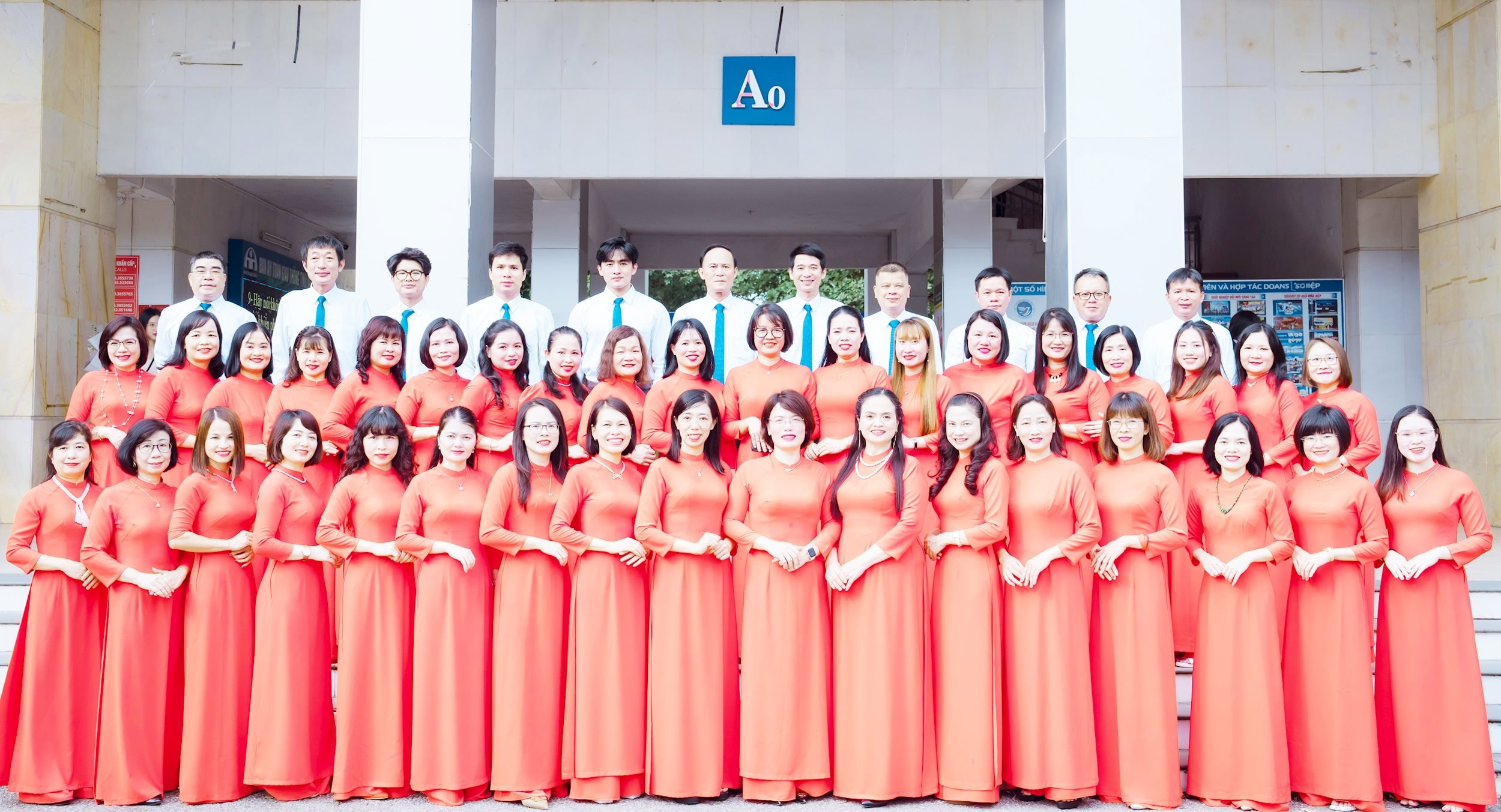
Accordingly, the Politburo requested to promote international integration in education and training, improve foreign language skills of students, and gradually make English the second language in schools. Conclusion 91-KL/TW has had a strong impact on public opinion in the country and has truly awakened not only training institutions but also agencies and businesses. There have been many articles discussing the challenges facing the country's education system, and many experts and large businesses have proposed fundamental solutions to carry out the task of "universalizing English for all people" (Pham Nhat Vuong).
As a large university in the North Central region, of course, Vinh University cannot stand aside. The vision of Vinh University is "to become a smart university, ranked in the top 500 universities in Asia by 2030, aiming for the top 1,000 universities in the world by 2045". The mission of Vinh University is to become "an educational institution that trains high-quality human resources, leading the development of education and training in the North Central region; a center for research and innovation, contributing to promoting national and international development." Through the statements about the Mission and Vision, it is possible to recognize the international integration orientation of the school. And it is certain that international integration cannot be separated from the training, fostering and scientific research of foreign languages and foreign language degrees.
The challenges
It must be recognized that policies, guidelines, strategies are one thing, but implementation is another. The challenges for foreign language training and development are not only limited to geographical location and learners, but also to facilities and equipment, not only to staff but also to educational philosophy, programs, methods, and teaching approaches. One of the biggest challenges for implementing foreign language teaching at Vinh University is its geographical location. In reality, Vinh city is not a city that attracts many tourists from English-speaking countries such as the UK, the US, Australia, etc.
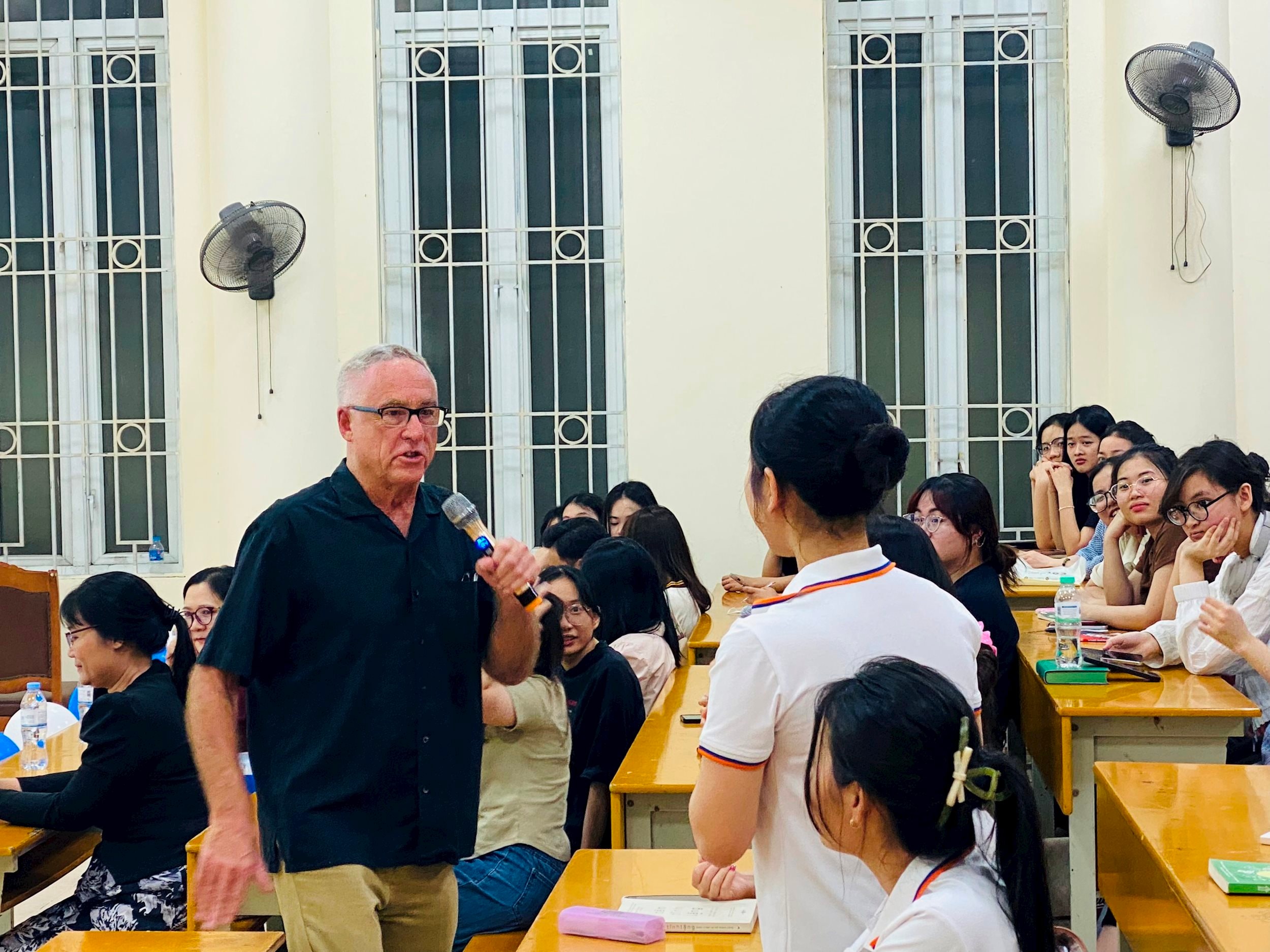
Therefore, the conditions for students to communicate directly with native speakers are very limited. The geographical location far from large cities is also a factor affecting investment attraction and affecting the economic development of Nghe An province. The lack of economic development will lead to a lack of resources to invest in education, including foreign language teaching.
In addition, the students’ input foreign language ability is relatively low; this is also the reason why foreign language teaching encounters many difficulties. Although more and more excellent students choose Vinh University as the destination for their university knowledge journey, however, the attraction of cities like Hanoi or Ho Chi Minh City is too great, many excellent students with conditions do not stay to study at university in their hometown.
That more or less affects the quality of students' input. Uneven input quality will certainly affect the quality of foreign language teaching. Although the School and the Foreign Language Project have invested in foreign language teaching equipment, to be fair, it still does not meet the teaching needs of lecturers and students. In the trend of rapid development of information technology, teaching equipment must also be compatible to meet teaching needs, not just stopping at audio-visual equipment.
Regarding staff, the Faculty of Foreign Languages Education has 51 staff, many of whom have been trained abroad such as the UK, the US, New Zealand, Japan, France, etc. Currently, the Faculty is responsible for training full-time bachelors in English Language, English Pedagogy, International Studies; training masters in English Teaching Theory and Methodology; training part-time bachelors, second degrees and distance learning in English Language, English Pedagogy (the number of students of the Faculty is 4,336, of which 2,630 are full-time students). In addition, as one of the 10 core units nationwide participating in the activities of the National Foreign Language Project from 2011 to present, the Faculty of Foreign Languages Education has participated in training language capacity and pedagogical skills for teachers at all levels of general education of many Departments of Education and Training nationwide such as Hoa Binh, Nam Dinh, Thanh Hoa, Nghe An, Ha Tinh, Quang Binh, Quang Tri, etc.

As the scale and scope of training are increasingly expanded, the work pressure of the Faculty's staff and lecturers is increasing. Not to mention that the Faculty's lecturers are facing the stormy development of information technology, especially AI. The pressure is doubled when they have to limit the negative impact of technology while taking advantage of the advancement of technology. There is nothing more difficult for foreign language lecturers than when they go to class, students already have smartphones, ready to check vocabulary, pronunciation, grammar structure, writing style, knowledge, ready to ask AI to write, speak, read, translate for them... Who knows, if they are not sophisticated and "sober" enough, lecturers will fall into difficult pedagogical situations...
Fundamental solution
It is impossible to help learners use English as a second language without a team of English lecturers and teachers who meet the requirements. In recent years, the number of lecturers of the Faculty of Foreign Languages Education sent by the School to study for a doctorate is impressive. Currently, there are 10 lecturers of the Faculty of Foreign Languages Education doing research at home and abroad. In parallel, the Faculty and the School regularly pay attention to training and improving teaching capacity, updating knowledge and advanced teaching techniques, and coordinating with educational organizations and leading experts at home and abroad to implement. In addition, the organization of international conferences on foreign language teaching (VinhTESOL, VietTESOL) is really contributing to improving the language and professional capacity of lecturers.
Improving the training program, detailed outline of English teaching according to the CDIO approach, focusing on output standards of knowledge, skills and attitudes to meet the labor market is a breakthrough solution. The application of active teaching methods such as project-based learning, blended learning, flipped classroom model... has contributed to helping students gradually achieve the requirements of foreign language proficiency to meet output standards. At the same time, during the learning process, lecturers often pay attention to regularly assessing students' foreign language proficiency, thereby making appropriate adjustments in teaching methods and content.

The school aims to overcome the limitations of the “communication environment” with technological solutions: CFO online training model (CDIO - Flipped - Online) and CFB combined training (CDIO - Flipped - Blended). Applying the online teaching platform to teaching has indeed contributed to reducing the workload of lecturers in the classroom.
Knowledge and skills that students can learn and research on their own are taught online through electronic lectures and exercises and tests, many of which are self-assessed and scored by the system. Classroom time is spent on exchanges and discussions between lecturers and students on difficult issues, aiming to develop critical thinking, analytical and creative abilities of students. These models contribute to making teaching and learning activities more active, less boring, and attracting more participation from students.
In addition, international cooperation is also a solution that the Faculty of Foreign Languages Education pays great attention to in order to improve the quality of teaching and scientific research. Many foreign experts have been invited to host workshops related to teaching methods and techniques. Through international cooperation, many lecturers from the US, Canada, and France have been invited to directly teach language students. In addition, technological solutions are one of the key solutions for the Faculty staff to improve the effectiveness of foreign language teaching.
At Vinh University, the Faculty of Foreign Languages Education is considered one of the pioneers in applying IT in teaching. Faculty lecturers have begun to guide students in applying AI in teaching. Now students can practice speaking and test taking thanks to artificial intelligence. Tools such as Gemini, Copilot, ChatGPT... are no longer strange to lecturers and students of the Faculty of Foreign Languages Education. One of the policies of the University and the Faculty is to improve the quality of training through extracurricular activities through the activities of the Youth Union, Association...
The Youth Union and the Faculty of Foreign Languages Education Association have coordinated to organize many activities to improve students' language skills. In addition to clubs such as English Speaking Zone, English Learning Assistant Club, FLD's IELTS Community, FLD Radio Station, students of the Faculty also organize drama contests, The Debate, translation contests, FulBright Spelling Bee, English Speaking Contest, Student Scientific Research Day, etc. When participating in these extracurricular activities, students not only improve their language skills and background knowledge but also help other students progress so that no one is left behind.
New language, new vision
Slogan of the Faculty of Foreign Languages:New Language, New Vision(New Language, New Vision) clearly defines the educational philosophy of the Faculty: Through teaching English to help students expand their knowledge and vision, turning English into a tool to acquire more knowledge is one of the core pedagogical orientations of the Faculty. Although the challenge of human resources and material resources is clearly present, however, Conclusion 91-KL/TW of the Party Central Committee is a real "push" for the leadership of Vinh University and the Faculty of Foreign Languages Education to have a clearer orientation in the new development stage. Therefore, recently, the Standing Committee of Vinh University had a private meeting with key staff of the Faculty on the development orientation of the Faculty.
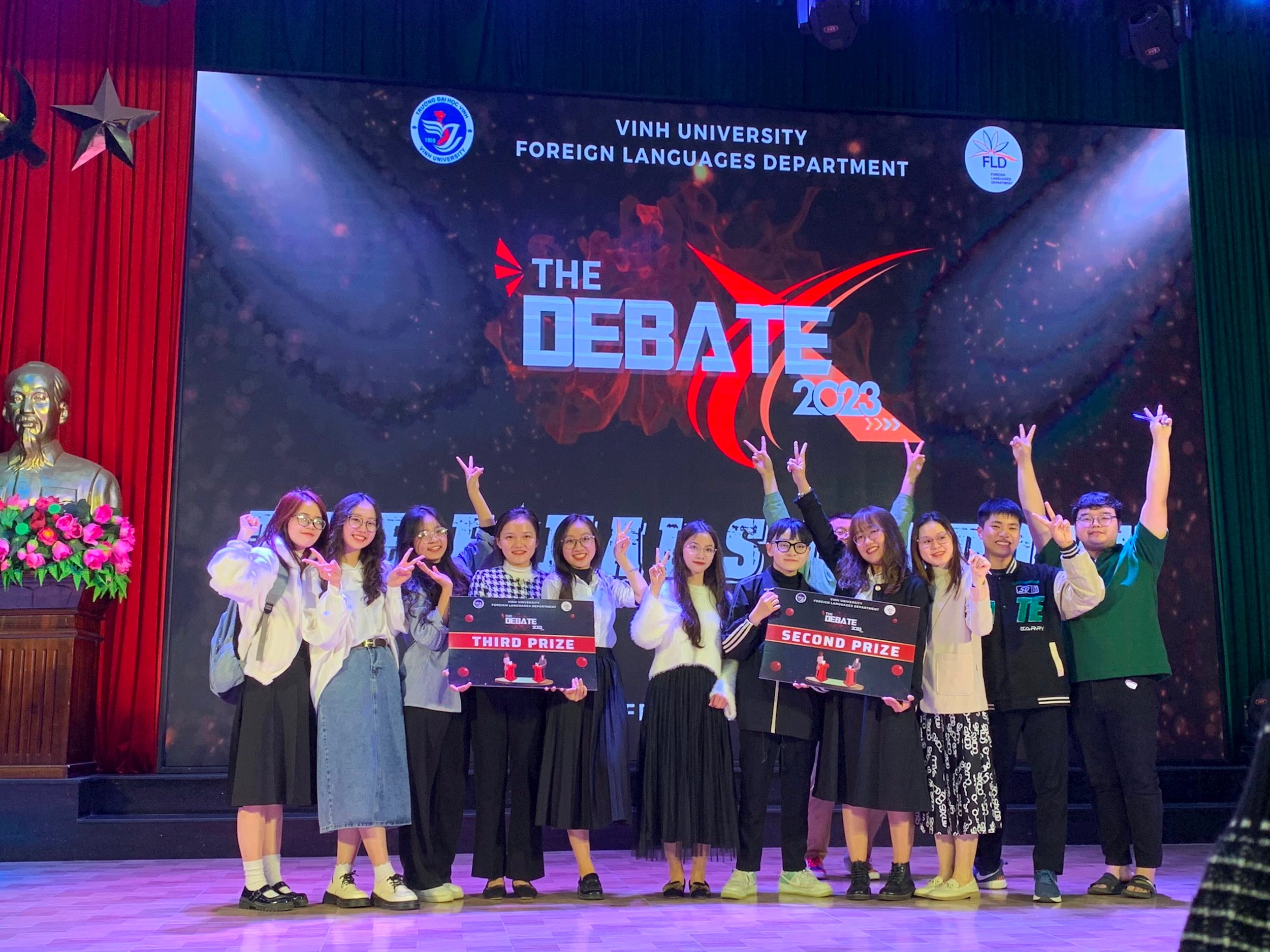
On October 27, 2024, the Faculty of Foreign Languages will hold its 30th Anniversary Ceremony. Hopefully, after that historic milestone, the Faculty will truly transform itself, have a short-term and long-term development strategy to strive to become a Foreign Language School, to truly pioneer in making English the second language in schools by improving training quality, strengthening international cooperation, investing in teaching equipment and technology, opening new training programs suitable to the needs of the English-speaking labor market.

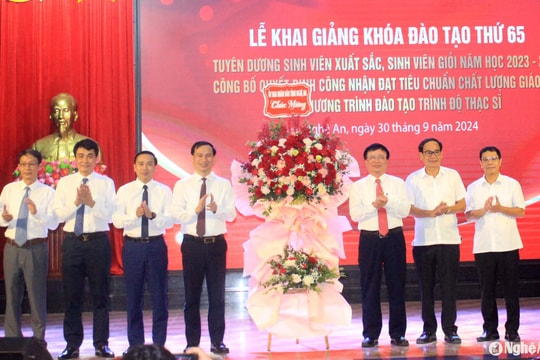
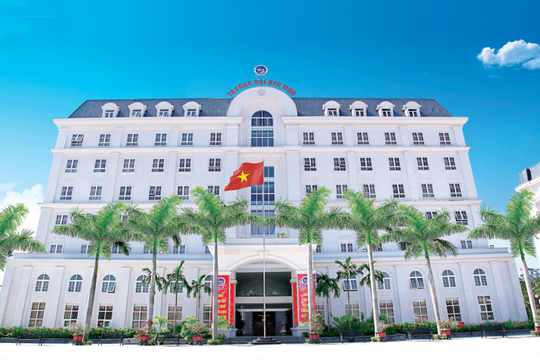
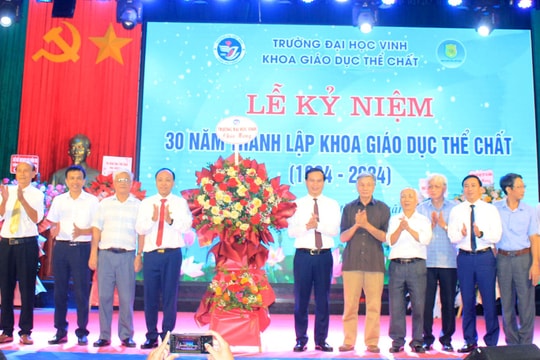
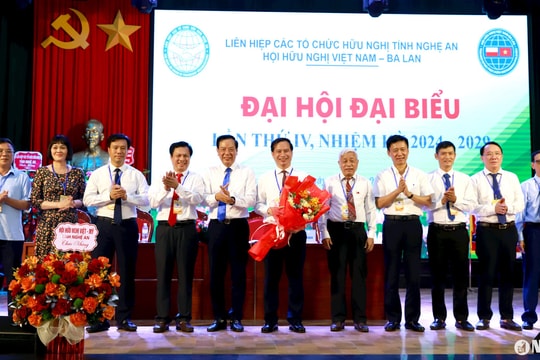
.jpg)
